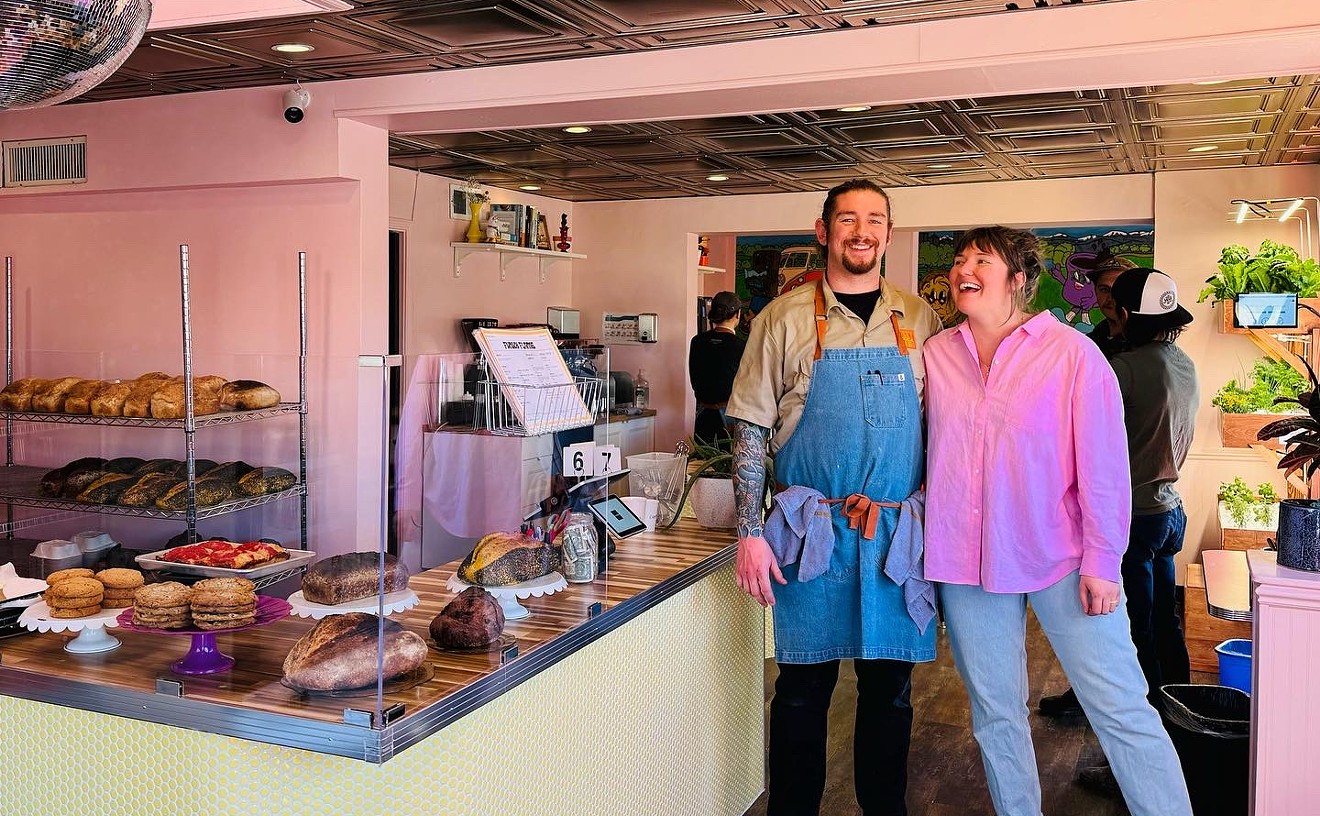Reading Michael Pollan's The Omnivore's Dilemma fucked me up good. It changed the way I looked at food forever and seriously altered the way I actually ate. Considering that eating is my vocation, this was no small thing. I have never looked at an ear of corn the same way again.
Jonathan Safran Foer's new book, Eating Animals, fucked me up even worse, and did so for a couple of reasons, which I will get to in a second. First, though, I think it important to answer a few of very basic questions.
1) Yes, I mean that Jonathan Safran Foer. The guy who wrote Everything Is Illuminated and has been called a genius by the New York Times.
2) No, this one isn't a work of fiction. It is actually a surprisingly astute and well-researched piece of personal journalism done by a fella previously known only for his ability to put many, many words together into pretty patterns. That isn't an easy leap to make. Foer manages it with elan.
3) Yes, it is about his conversion to vegetarianism. Sorta. Depending on which source you believe (and depending, partly, on Foer's own slightly confused telling), he might've been a vegetarian since age ten, twelve or fifteen. Basically, this is a story of a man going from being an occasional vegetarian to being one full-time. More specifically, it's the story of why.
4) Yes, it is amazing that I am reading a book about vegetarianism. At least it would probably seem that way to anyone who knows me only through my writing. In the real world? Not so amazing at all. Food is my life. I want to know everything I can about it. And right now? Foer is a man who knows a lot about food.
5) No, you should not read this book if you ever want to eat comfortably again.
Eating Animals is not an easy book to read. It ain't pretty. It ain't nice. It is (like Fast Food Nation before it and The Jungle before that) a scathing, brutal indictment of the factory-farm system that controls roughly 99 percent of the meat we eat every day, from the moment of an animal's birth to the instant of its screaming, horrific death. It is sensational, but not hyperbolic -- Foer is too smart a writer for that. It is both deeply personal and (surprisingly) objective. Finally (spoiler alert!) he ends up a committed vegetarian by the last page. And I nearly did, too.
Some words from the man himself:
"I have placed my wager on a vegetarian diet and I have enough respect for people...who have bet on a more humane animal agriculture, to support their kind of farming. This is not in the end a complicated position. Nor is it a veiled argument for vegetarianism. It is an argument for vegetarianism, but it's also an argument for another, wiser animal agriculture and more honorable omnivory.
"If we are not given the option to live without violence, we are given the choice to center our meals around harvest or slaughter, husbandry or war. We have chosen slaughter. We have chosen war. That's the truest version of our story of eating animals."
After 250-some pages of some of the most graphic and disturbing images outside of a PETA rally, I can't argue against that. Slaughter? Yes. War? Absolutely. And Foer does not toss those words around lightly. He shows, again and again and again, that, by and large, we do not just grow animals and harvest animals and eat animals, but have been involved in an on-going and ever-increasing animal genocide. Worse, we grow new animals just so we have new animals to kill. Worse still, we are all complicit. He has the facts and the figures to back him up. He has right (a moral and philosophical right, even an economic and social right) on his side, which makes his position damnably difficult to assail.
But, then again, I have bacon on my side. And bacon is tough to argue with, too.
I won't go into exhaustive detail here about the nightmares that Foer has given me. I won't presume to cherry-pick at his research. Honestly, this is one of those books that needs to be read in whole, not in bits and pieces, because its greatest triumph is in structure -- in the way that he has layered his argument and given voice (if not quite equal voice) to both sides of the herbivore/omnivore debate (with a particular shout-out to Bill Niman and Niman Ranch in the days before Bill was forced out of the company that still bears his name), the way he has woven his own personal narrative through the grunt work of investigative journalism.
Eating Animals is one of those stories that everyone should read. It's one of those that no one should read. It's one of the rare ones that leaves you, at its finish, not just moved enough to do something, but ashamed at doing nothing. And that, kids, is like playing with uranium. Open the box and it's already too late. There are some things that you just can't un-know once you know them, and Eating Animals is full of things I wish I didn't know.
It's too late for me. You'll have to make your own decisions. But don't say I didn't warn you.










